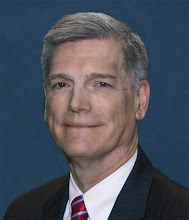 John Batchelor hosts a radio talk show known for the variety of topics it covers and guests it draws. The show is broadcast in the evenings here on the East Coast, and podcasts of past shows are available on the show's website. For us, one of the more interesting guests recently was John Moore, CEO of Acorn Energy, who appeared in the fourth hour of the October 15 show (Minutes 0:00-9:27). Mr. Moore has a new book called "The Hidden Cleantech Revolution: Five Priorities for Securing America's Energy Future without Breaking the Bank."
John Batchelor hosts a radio talk show known for the variety of topics it covers and guests it draws. The show is broadcast in the evenings here on the East Coast, and podcasts of past shows are available on the show's website. For us, one of the more interesting guests recently was John Moore, CEO of Acorn Energy, who appeared in the fourth hour of the October 15 show (Minutes 0:00-9:27). Mr. Moore has a new book called "The Hidden Cleantech Revolution: Five Priorities for Securing America's Energy Future without Breaking the Bank."In his Batchelor Show appearance, Mr. Moore spoke about inconsistencies in federal policies towards nuclear energy, contrasting the promise of loan guarantees on the one hand with killing the Yucca Mountain project on the other. Mr. Batchelor remarked on the unreasonably high 11% fee the
 government would have charged for its loan guarantee on the Calvert Cliffs-3 project. Mr. Moore offered figures showing that nuclear is among the least subsidized energy sources, contrary to popular perception. He emphasized the importance of a diverse energy supply and warned that the current "romance" with renewables could blind us to the risks in becoming too dependent on one source of energy. He said that pursuing renewables to excess, for example, could result in trading our dependence on foreign oil for an equally problematic dependence on foreign supplies of strategic minerals such as rare earths, used in high-strength magnets needed for wind turbines and in solar cells.
government would have charged for its loan guarantee on the Calvert Cliffs-3 project. Mr. Moore offered figures showing that nuclear is among the least subsidized energy sources, contrary to popular perception. He emphasized the importance of a diverse energy supply and warned that the current "romance" with renewables could blind us to the risks in becoming too dependent on one source of energy. He said that pursuing renewables to excess, for example, could result in trading our dependence on foreign oil for an equally problematic dependence on foreign supplies of strategic minerals such as rare earths, used in high-strength magnets needed for wind turbines and in solar cells. Mr. Moore's book is available for downloading at his web site.
Upper photo: John Batchelor at work.
Lower photo: John. A. Moore, CEO, Acorn Energy (ACFN-NASDAQ).

Comments
I think a better argument would be where do the large components during construction and the fuel during operation come from.
The designs themselves seem a little less important, and how "foreign" they are is somewhat debatable.
AP1000 - by Westinghouse, headquartered in Pittsburgh, PA. Although majority owned by Japanese interests (Toshiba), this is still Americans designing American reactors.
US-EPR - Areva. This one is decidely French, although there us such a thing as Areva in the US, headquartered in Lynchburg, VA. Besides, the EPR is an evolutionary design from France's standard PWR, which began as a Westinghouse design anyway.
ABWR - General Electric design, licensed to Toshiba. GE is as American as apple pie.
(That about wraps up the leading 3 projects on people's minds - Vogtle, Calvert Cliffs, South Texas Project.)
If you want the US to be totally isolated from foreigners, then nowadays that's going to mean coal and gas power plants. Nothing else.
Diversity also includes technologies with different asset lives. Building and operating a long-lived asset like a nuclear power plant may allow more flexibility on when, where and how to obtain strategic materials than is possible for a shorter-lived asset that has to be replaced or refueled more often. Shorter-lived assets, on the other hand, can help make the portfolio more responsive to short-term changes in energy demand, albeit at higher per-unit costs.
The risk of foreign dependence is on the fuel or the materials, not on the technology.
Thus, plenty of people worry about the US's dependence on foreign oil, but nobody in their right mind worries about the US's dependence on foreign automobiles -- because, say, Volvo, Toyota, and Honda are selling Swedish and Japanese designs.
All of the new proposed units are either Pressurized Water Reactors (PWR's) or Boiling Water Reactors (BWR's), two designs that were conceived, were developed, were built, and are well understood by American engineers.
This is American technology that we know well. The only thing that the other parts of the world have figured out, which we don't yet understand, is how to sell them and build them relatively cheaply. We haven't lost our technical edge; rather, we're coming up short in the sales, marketing, and regulatory departments.